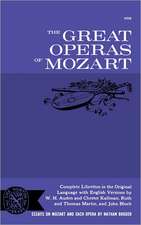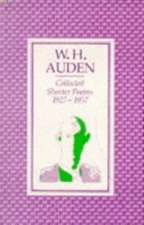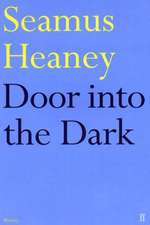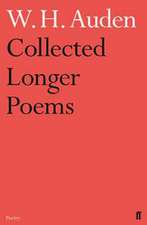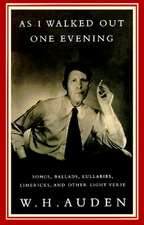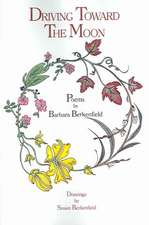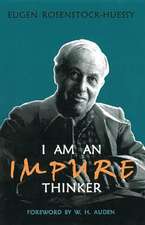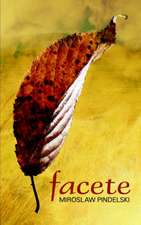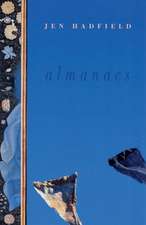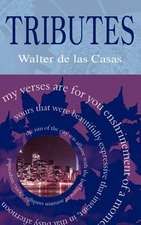W. H. Auden
Autor W. H. Auden Editat de James Fenton, John Fulleren Limba Engleză Paperback – 7 apr 2005
| Toate formatele și edițiile | Preț | Express |
|---|---|---|
| Paperback (2) | 61.94 lei 22-36 zile | +3.37 lei 6-12 zile |
| FABER & FABER – 7 apr 2005 | 61.94 lei 22-36 zile | +3.37 lei 6-12 zile |
| Vintage Books USA – 31 ian 2007 | 98.15 lei 22-36 zile |
Preț: 61.94 lei
Nou
Puncte Express: 93
Preț estimativ în valută:
11.86€ • 12.88$ • 9.97£
11.86€ • 12.88$ • 9.97£
Carte disponibilă
Livrare economică 31 martie-14 aprilie
Livrare express 15-21 martie pentru 13.36 lei
Preluare comenzi: 021 569.72.76
Specificații
ISBN-13: 9780571226719
ISBN-10: 057122671X
Pagini: 112
Dimensiuni: 119 x 196 x 12 mm
Greutate: 0.08 kg
Ediția:Main. Auflage
Editura: FABER & FABER
Locul publicării:United Kingdom
ISBN-10: 057122671X
Pagini: 112
Dimensiuni: 119 x 196 x 12 mm
Greutate: 0.08 kg
Ediția:Main. Auflage
Editura: FABER & FABER
Locul publicării:United Kingdom
Cuprins
Note to the Expanded Edition xiii
Introduction xv
1. Who stands, the crux left of the watershed
2. From the very first coming down
3. Control of the passes was, he saw, the key
4. Taller to-day, we remember similar evenings
5. Watch any day his nonchalant pauses, see
6. Will you turn a deaf ear
7. Sir, no man’s enemy, forgiving all
8. It was Easter as I walked in the public gardens
9. Since you are going to begin to-day
10. Consider this and in our time
11. This lunar beauty
12. To ask the hard question is simple
13. Doom is dark and deeper than any sea-dingle
14. What’s in your mind, my dove, my coney
15. “O where are you going?” said reader to rider
16. Though aware of our rank and alert to obey orders
17. O Love, the interest itself in thoughtless Heaven
18. O what is that sound which so thrills the ear
19. Hearing of harvests rotting in the valleys
20. Out on the lawn I lie in bed
21. A shilling life will give you all the facts
22. Our hunting fathers told the story
23. Easily, my dear, you move, easily your head
24. The Summer holds: upon its glittering lake
25. Now through night’s caressing grip
26. O for doors to be open and an invite with gilded edges
27. Look, stranger, at this island now
28. Now the leaves are falling fast
29. Underneath the abject willow
30. Dear, though the night is gone
31. Fish in the unruffled lakes
32. Casino
33. Funeral Blues
34. Journey to Iceland
35. “O who can ever gaze his fill”
36. Lay your sleeping head, my love
37. Spain
38. Johnny
39. Orpheus
40. Miss Gee
41. Wrapped in a yielding air, beside
42. Dover
43. As I walked out one evening
44. Oxford
45. O Tell Me the Truth About Love
46. In Time of War
47. The Capital
48. Museé des Beaux Arts
49. Epitaph on a Tyrant
50. In Memory of W. B. Yeats
51. Refugee Blues
52. The Unknown Citizen
53. Calypso
54. September 1, 1939
55. Law, say the gardeners, is the sun
56. In Memory of Sigmund Freud
57. Eyes look into the well
58. Lady, weeping at the crossroads
59. Song for St. Cecilia’s Day
60. The Quest
61. But I Can’t
62. In Sickness and in Health
63. Leap Before You Look
64. Jumbled in the common box
65. Atlantis
66. At the Grave of Henry James
67. Mundus et Infans
68. The Lesson
69. The Sea and the Mirror
70. Noon
71. Lament for a Lawgiver
72. Under Which Lyre
73. The Fall of Rome
74. In Praise of Limestone
75. A Household
76. Song
77. A Walk After Dark
78. Memorial for the City
79. Under Sirius
80. Their Lonely Betters
81. Nocturne I
82. Fleet Visit
83. The Shield of Achilles
84. The Willow-Wren and the Stare
85. Epitaph for the Unknown Soldier
86. Nocturne II
87. Bucolics
88. Horae Canonicae
89. Homage to Clio
90. The Old Man’s Road
91. The Song
92. First Things First
93. The More Loving One
94. Friday’s Child
95. Good-bye to the Mezzogiorno
96. Dame Kind
97. You
98. A Change of Air
99. After Reading a Child’s Guide to Modern Physics
100. On the Circuit
101. Et in Arcadia Ego
102. Thanksgiving for a Habitat
103. Epithalamium
104. Amor Loci
105. Profile
106. Fairground
107. River Profile
108. Prologue at Sixty
109. Forty Years On
110. Ode to Terminus
111. August 1968
112. A New Year Greeting
113. Moon Landing
114. Old People’s Home
115. Talking to Myself
116. A Shock
117. A Lullaby
118. Aubade
119. A Thanksgiving
120. Archaeology 3
A Note on the Text
Explanatory Notes
Index of Titles and First Lines
Introduction xv
1. Who stands, the crux left of the watershed
2. From the very first coming down
3. Control of the passes was, he saw, the key
4. Taller to-day, we remember similar evenings
5. Watch any day his nonchalant pauses, see
6. Will you turn a deaf ear
7. Sir, no man’s enemy, forgiving all
8. It was Easter as I walked in the public gardens
9. Since you are going to begin to-day
10. Consider this and in our time
11. This lunar beauty
12. To ask the hard question is simple
13. Doom is dark and deeper than any sea-dingle
14. What’s in your mind, my dove, my coney
15. “O where are you going?” said reader to rider
16. Though aware of our rank and alert to obey orders
17. O Love, the interest itself in thoughtless Heaven
18. O what is that sound which so thrills the ear
19. Hearing of harvests rotting in the valleys
20. Out on the lawn I lie in bed
21. A shilling life will give you all the facts
22. Our hunting fathers told the story
23. Easily, my dear, you move, easily your head
24. The Summer holds: upon its glittering lake
25. Now through night’s caressing grip
26. O for doors to be open and an invite with gilded edges
27. Look, stranger, at this island now
28. Now the leaves are falling fast
29. Underneath the abject willow
30. Dear, though the night is gone
31. Fish in the unruffled lakes
32. Casino
33. Funeral Blues
34. Journey to Iceland
35. “O who can ever gaze his fill”
36. Lay your sleeping head, my love
37. Spain
38. Johnny
39. Orpheus
40. Miss Gee
41. Wrapped in a yielding air, beside
42. Dover
43. As I walked out one evening
44. Oxford
45. O Tell Me the Truth About Love
46. In Time of War
47. The Capital
48. Museé des Beaux Arts
49. Epitaph on a Tyrant
50. In Memory of W. B. Yeats
51. Refugee Blues
52. The Unknown Citizen
53. Calypso
54. September 1, 1939
55. Law, say the gardeners, is the sun
56. In Memory of Sigmund Freud
57. Eyes look into the well
58. Lady, weeping at the crossroads
59. Song for St. Cecilia’s Day
60. The Quest
61. But I Can’t
62. In Sickness and in Health
63. Leap Before You Look
64. Jumbled in the common box
65. Atlantis
66. At the Grave of Henry James
67. Mundus et Infans
68. The Lesson
69. The Sea and the Mirror
70. Noon
71. Lament for a Lawgiver
72. Under Which Lyre
73. The Fall of Rome
74. In Praise of Limestone
75. A Household
76. Song
77. A Walk After Dark
78. Memorial for the City
79. Under Sirius
80. Their Lonely Betters
81. Nocturne I
82. Fleet Visit
83. The Shield of Achilles
84. The Willow-Wren and the Stare
85. Epitaph for the Unknown Soldier
86. Nocturne II
87. Bucolics
88. Horae Canonicae
89. Homage to Clio
90. The Old Man’s Road
91. The Song
92. First Things First
93. The More Loving One
94. Friday’s Child
95. Good-bye to the Mezzogiorno
96. Dame Kind
97. You
98. A Change of Air
99. After Reading a Child’s Guide to Modern Physics
100. On the Circuit
101. Et in Arcadia Ego
102. Thanksgiving for a Habitat
103. Epithalamium
104. Amor Loci
105. Profile
106. Fairground
107. River Profile
108. Prologue at Sixty
109. Forty Years On
110. Ode to Terminus
111. August 1968
112. A New Year Greeting
113. Moon Landing
114. Old People’s Home
115. Talking to Myself
116. A Shock
117. A Lullaby
118. Aubade
119. A Thanksgiving
120. Archaeology 3
A Note on the Text
Explanatory Notes
Index of Titles and First Lines
Notă biografică
W. H. Auden (1907-73) was born in York, England, and educated at Oxford. During the 1930s he was the leader of a left-wing literary group that included Christopher Isherwood and Stephen Spender. With Isherwood he wrote three verse plays. He lived in Germany during the early days of Nazism, and was a stretcher-bearer for the Republicans during the Spanish Civil War. Auden's first volume of poetry appeared in 1930. Later volumes include Spain (1937), New Year Letter (1941), For the Time Being, a Christmas Oratorio (1945), The Age of Anxiety (1947; Pulitzer Prize), Nones (1951), The Shield of Achilles (1955), Homage to Clio (1960), About the House (1965), Epistle of a Godson (1972), and Thank You, Fog (1974). His other works include the libretto, with his companion Chester Kallman, for Stravinsky's opera The Rake's Progress (1953); A Certain World: A Commonplace Book (1970); and The Dyer's Hand and Other Essays (1968). In 1939 Auden moved to the United States and became a citizen in 1946, and beginning that year taught at a number of American colleges and universities. From 1956 to 1961 he was professor of poetry at Oxford. Subsequently he lived in a number of countries, including Italy and Austria, and in 1971 he returned to England. He was awarded the National Medal for Literature in 1967.
Extras
1
Who stands, the crux left of the watershed,
On the wet road between the chafing grass
Below him sees dismantled washing-floors,
Snatches of tramline running to the wood,
An industry already comatose,
Yet sparsely living. A ramshackle engine
At Cashwell raises water; for ten years
It lay in flooded workings until this,
Its latter office, grudgingly performed,
And further here and there, though many dead
Lie under the poor soil, some acts are chosen
Taken from recent winters; two there were
Cleaned out a damaged shaft by hand, clutching
The winch the gale would tear them from; one died
During a storm, the fells impassable,
Not at his village, but in wooden shape
Through long abandoned levels nosed his way
And in his final valley went to ground.
Go home, now, stranger, proud of your young stock,
Stranger, turn back again, frustrate and vexed:
This land, cut off, will not communicate,
Be no accessory content to one
Aimless for faces rather there than here.
Beams from your car may cross a bedroom wall,
They wake no sleeper; you may hear the wind
Arriving driven from the ignorant sea
To hurt itself on pane, on bark of elm
Where sap unbaffled rises, being Spring;
But seldom this. Near you, taller than grass,
Ears poise before decision, scenting danger.
August 1927
2
From the very first coming down
Into a new valley with a frown
Because of the sun and a lost way,
You certainly remain: to-day
I, crouching behind a sheep-pen, heard
Travel across a sudden bird,
Cry out against the storm, and found
The year's arc a completed round
And love's worn circuit re-begun,
Endless with no dissenting turn.
Shall see, shall pass, as we have seen
The swallow on the tile, Spring's green
Preliminary shiver, passed
A solitary truck, the last
Of shunting in the Autumn. But now
To interrupt the homely brow,
Thought warmed to evening through and through
Your letter comes, speaking as you,
Speaking of much but not to come.
Nor speech is close nor fingers numb,
If love not seldom has received
An unjust answer, was deceived.
I, decent with the seasons, move
Different or with a different love,
Nor question overmuch the nod,
The stone smile of this country god
That never was more reticent,
Always afraid to say more than it meant.
December 1927
3
Control of the passes was, he saw, the key
To this new district, but who would get it?
He, the trained spy, had walked into the trap
For a bogus guide, seduced with the old tricks.
At Greenhearth was a fine site for a dam
And easy power, had they pushed the rail
Some stations nearer. They ignored his wires.
The bridges were unbuilt and trouble coming.
The street music seemed gracious now to one
For weeks up in the desert. Woken by water
Running away in the dark, he often had
Reproached the night for a companion
Dreamed of already. They would shoot, of course,
Parting easily who were never joined.
January 1928
4
Taller to-day, we remember similar evenings,
Walking together in the windless orchard
Where the brook runs over the gravel, far from the glacier.
Again in the room with the sofa hiding the grate,
Look down to the river when the rain is over,
See him turn to the window, hearing our last
Of Captain Ferguson.
It is seen how excellent hands have turned to commonness.
One staring too long, went blind in a tower,
One sold all his manors to fight, broke through, and faltered.
Nights come bringing the snow, and the dead howl
Under the headlands in their windy dwelling
Because the Adversary put too easy questions
On lonely roads.
But happy now, though no nearer each other,
We see the farms lighted all along the valley;
Down at the mill-shed the hammering stops
And men go home.
Noises at dawn will bring
Freedom for some, but not this peace
No bird can contradict: passing, but is sufficient now
For something fulfilled this hour, loved or endured.
March 1928
5
Watch any day his nonchalant pauses, see
His dextrous handling of a wrap as he
Steps after into cars, the beggar's envy.
"There is a free one," many say, but err.
He is not that returning conqueror,
Nor ever the poles' circumnavigator.
But poised between shocking falls on razor-edge
Has taught himself this balancing subterfuge
Of the accosting profile, the erect carriage.
The song, the varied action of the blood
Would drown the warning from the iron wood
Would cancel the inertia of the buried:
Travelling by daylight on from house to house
The longest way to the intrinsic peace,
With love's fidelity and with love's weakness.
March 1929
6
Will you turn a deaf ear
To what they said on the shore,
Interrogate their poises
In their rich houses;
Of stork-legged heaven-reachers
Of the compulsory touchers
The sensitive amusers
And masked amazers?
Yet wear no ruffian badge
Nor lie behind the hedge
Waiting with bombs of conspiracy
In arm-pit secrecy;
Carry no talisman
For germ or the abrupt pain
Needing no concrete shelter
Nor porcelain filter.
Will you wheel death anywhere
In his invalid chair,
With no affectionate instant
But his attendant?
For to be held for friend
By an undeveloped mind
To be joke for children is
Death's happiness:
Whose anecdotes betray
His favourite colour as blue
Colour of distant bells
And boys' overalls.
His tales of the bad lands
Disturb the sewing hands;
Hard to be superior
On parting nausea;
To accept the cushions from
Women against martyrdom,
Yet applauding the circuits
Of racing cyclists.
Never to make signs
Fear neither maelstrom nor zones
Salute with soldiers' wives
When the flag waves;
Remembering there is
No recognised gift for this;
No income, no bounty,
No promised country.
But to see brave sent home
Hermetically sealed with shame
And cold's victorious wrestle
With molten metal.
A neutralising peace
And an average disgrace
Are honour to discover
For later other.
September 1929
7
Sir, no man's enemy, forgiving all
But will his negative inversion, be prodigal:
Send to us power and light, a sovereign touch
Curing the intolerable neural itch,
The exhaustion of weaning, the liar's quinsy,
And the distortions of ingrown virginity.
Prohibit sharply the rehearsed response
And gradually correct the coward's stance;
Cover in time with beams those in retreat
That, spotted, they turn though the reverse were great;
Publish each healer that in city lives
Or country houses at the end of drives;
Harrow the house of the dead; look shining at
New styles of architecture, a change of heart.
October 1929
8
I
It was Easter as I walked in the public gardens
Hearing the frogs exhaling from the pond,
Watching traffic of magnificent cloud
Moving without anxiety on open sky--
Season when lovers and writers find
An altering speech for altering things,
An emphasis on new names, on the arm
A fresh hand with fresh power.
But thinking so I came at once
Where solitary man sat weeping on a bench,
Hanging his head down, with his mouth distorted
Helpless and ugly as an embryo chicken.
So I remember all of those whose death
Is necessary condition of the season's setting forth,
Who sorry in this time look only back
To Christmas intimacy, a winter dialogue
Fading in silence, leaving them in tears.
And recent particulars come to mind:
The death by cancer of a once hated master,
A friend's analysis of his own failure,
Listened to at intervals throughout the winter
At different hours and in different rooms.
But always with success of others for comparison,
The happiness, for instance, of my friend Kurt Groote,
Absence of fear in Gerhart Meyer
From the sea, the truly strong man.
A 'bus ran home then, on the public ground
Lay fallen bicycles like huddled corpses:
No chattering valves of laughter emphasised
Nor the swept gown ends of a gesture stirred
The sessile hush; until a sudden shower
Fell willing into grass and closed the day,
Making choice seem a necessary error.
April 1929
II
Coming out of me living is always thinking,
Thinking changing and changing living,
Am feeling as it was seeing--
In city leaning on harbour parapet
To watch a colony of duck below
Sit, preen, and doze on buttresses
Or upright paddle on flickering stream,
Casually fishing at a passing straw.
Those find sun's luxury enough,
Shadow know not of homesick foreigner
Nor restlessness of intercepted growth.
All this time was anxiety at night,
Shooting and barricade in street.
Walking home late I listened to a friend
Talking excitedly of final war
Of proletariat against police--
That one shot girl of nineteen through the knees,
They threw that one down concrete stair--
Till I was angry, said I was pleased.
Time passes in Hessen, in Gutensberg,
With hill-top and evening holds me up,
Tiny observer of enormous world.
Smoke rises from factory in field,
Memory of fire: On all sides heard
Vanishing music of isolated larks:
From village square voices in hymn,
Men's voices, an old use.
And I above standing, saying in thinking:
"Is first baby, warm in mother,
Before born and is still mother,
Time passes and now is other,
Is knowledge in him now of other,
Cries in cold air, himself no friend.
In grown man also, may see in face
In his day-thinking and in his night-thinking
Is wareness and is fear of other,
Alone in flesh, himself no friend.
"He say 'We must forgive and forget,'
Forgetting saying but is unforgiving
And unforgiving is in his living;
Body reminds in him to loving,
Reminds but takes no further part,
Perfunctorily affectionate in hired room
But takes no part and is unloving
But loving death. May see in dead,
In face of dead that loving wish,
As one returns from Africa to wife
And his ancestral property in Wales."
Yet sometimes man look and say good
At strict beauty of locomotive,
Completeness of gesture or unclouded eye;
In me so absolute unity of evening
And field and distance was in me for peace,
Was over me in feeling without forgetting
Those ducks' indifference, that friend's hysteria,
Without wishing and with forgiving,
To love my life, not as other,
Not as bird's life, not as child's,
"Cannot," I said, "being no child now nor a bird."
May 1929
III
Order to stewards and the study of time,
Correct in books, was earlier than this
But joined this by the wires I watched from train,
Slackening of wire and posts' sharp reprimand,
In month of August to a cottage coming.
Being alone, the frightened soul
Returns to this life of sheep and hay
No longer his: he every hour
Moves further from this and must so move,
As child is weaned from his mother and leaves home
But taking the first steps falters, is vexed,
Happy only to find home, a place
Where no tax is levied for being there.
So, insecure, he loves and love
Is insecure, gives less than he expects.
He knows not if it be seed in time to display
Luxuriantly in a wonderful fructification
Or whether it be but a degenerate remnant
Of something immense in the past but now
Surviving only as the infectiousness of disease
Or in the malicious caricature of drunkenness;
Its end glossed over by the careless but known long
To finer perception of the mad and ill.
Moving along the track which is himself,
He loves what he hopes will last, which gone,
Begins the difficult work of mourning,
And as foreign settlers to strange country come,
By mispronunciation of native words
And by intermarriage create a new race
And a new language, so may the soul
Be weaned at last to independent delight.
Startled by the violent laugh of a jay
I went from wood, from crunch underfoot,
Air between stems as under water;
As I shall leave the summer, see autumn come
Focusing stars more sharply in the sky,
See frozen buzzard flipped down the weir
And carried out to sea, leave autumn,
See winter, winter for earth and us,
A forethought of death that we may find ourselves at death
Not helplessly strange to the new conditions.
August 1929
IV
It is time for the destruction of error.
The chairs are being brought in from the garden,
The summer talk stopped on that savage coast
Before the storms, after the guests and birds:
In sanatoriums they laugh less and less,
Less certain of cure; and the loud madman
Sinks now into a more terrible calm.
The falling leaves know it, the children,
At play on the fuming alkali-tip
Or by the flooded football ground, know it--
This is the dragon's day, the devourer's:
Orders are given to the enemy for a time
With underground proliferation of mould,
With constant whisper and the casual question,
To haunt the poisoned in his shunned house,
To destroy the efflorescence of the flesh,
To censor the play of the mind, to enforce
Conformity with the orthodox bone,
With organised fear, the articulated skeleton.
You whom I gladly walk with, touch,
Or wait for as one certain of good,
We know it, we know that love
Needs more than the admiring excitement of union,
More than the abrupt self-confident farewell,
The heel on the finishing blade of grass,
The self-confidence of the falling root,
Needs death, death of the grain, our death.
Death of the old gang; would leave them
In sullen valley where is made no friend,
The old gang to be forgotten in the spring,
The hard bitch and the riding-master,
Stiff underground; deep in clear lake
The lolling bridegroom, beautiful, there.
October 1929
9
Since you are going to begin to-day
Let us consider what it is you do.
You are the one whose part it is to lean,
For whom it is not good to be alone.
Laugh warmly turning shyly in the hall
Or climb with bare knees the volcanic hill,
Acquire that flick of wrist and after strain
Relax in your darling's arms like a stone
Remembering everything you can confess,
Making the most of firelight, of hours of fuss;
But joy is mine not yours--to have come so far,
Whose cleverest invention was lately fur;
Lizards my best once who took years to breed,
Could not control the temperature of blood.
To reach that shape for your face to assume,
Pleasure to many and despair to some,
I shifted ranges, lived epochs handicapped
By climate, wars, or what the young men kept,
Modified theories on the types of dross,
Altered desire and history of dress.
You in the town now call the exile fool
That writes home once a year as last leaves fall,
Think--Romans had a language in their day
And ordered roads with it, but it had to die:
Your culture can but leave--forgot as sure
As place-name origins in favourite shire--
Jottings for stories, some often-mentioned Jack,
And references in letters to a private joke,
Equipment rusting in unweeded lanes,
Virtues still advertised on local lines;
And your conviction shall help none to fly,
Cause rather a perversion on next floor.
Who stands, the crux left of the watershed,
On the wet road between the chafing grass
Below him sees dismantled washing-floors,
Snatches of tramline running to the wood,
An industry already comatose,
Yet sparsely living. A ramshackle engine
At Cashwell raises water; for ten years
It lay in flooded workings until this,
Its latter office, grudgingly performed,
And further here and there, though many dead
Lie under the poor soil, some acts are chosen
Taken from recent winters; two there were
Cleaned out a damaged shaft by hand, clutching
The winch the gale would tear them from; one died
During a storm, the fells impassable,
Not at his village, but in wooden shape
Through long abandoned levels nosed his way
And in his final valley went to ground.
Go home, now, stranger, proud of your young stock,
Stranger, turn back again, frustrate and vexed:
This land, cut off, will not communicate,
Be no accessory content to one
Aimless for faces rather there than here.
Beams from your car may cross a bedroom wall,
They wake no sleeper; you may hear the wind
Arriving driven from the ignorant sea
To hurt itself on pane, on bark of elm
Where sap unbaffled rises, being Spring;
But seldom this. Near you, taller than grass,
Ears poise before decision, scenting danger.
August 1927
2
From the very first coming down
Into a new valley with a frown
Because of the sun and a lost way,
You certainly remain: to-day
I, crouching behind a sheep-pen, heard
Travel across a sudden bird,
Cry out against the storm, and found
The year's arc a completed round
And love's worn circuit re-begun,
Endless with no dissenting turn.
Shall see, shall pass, as we have seen
The swallow on the tile, Spring's green
Preliminary shiver, passed
A solitary truck, the last
Of shunting in the Autumn. But now
To interrupt the homely brow,
Thought warmed to evening through and through
Your letter comes, speaking as you,
Speaking of much but not to come.
Nor speech is close nor fingers numb,
If love not seldom has received
An unjust answer, was deceived.
I, decent with the seasons, move
Different or with a different love,
Nor question overmuch the nod,
The stone smile of this country god
That never was more reticent,
Always afraid to say more than it meant.
December 1927
3
Control of the passes was, he saw, the key
To this new district, but who would get it?
He, the trained spy, had walked into the trap
For a bogus guide, seduced with the old tricks.
At Greenhearth was a fine site for a dam
And easy power, had they pushed the rail
Some stations nearer. They ignored his wires.
The bridges were unbuilt and trouble coming.
The street music seemed gracious now to one
For weeks up in the desert. Woken by water
Running away in the dark, he often had
Reproached the night for a companion
Dreamed of already. They would shoot, of course,
Parting easily who were never joined.
January 1928
4
Taller to-day, we remember similar evenings,
Walking together in the windless orchard
Where the brook runs over the gravel, far from the glacier.
Again in the room with the sofa hiding the grate,
Look down to the river when the rain is over,
See him turn to the window, hearing our last
Of Captain Ferguson.
It is seen how excellent hands have turned to commonness.
One staring too long, went blind in a tower,
One sold all his manors to fight, broke through, and faltered.
Nights come bringing the snow, and the dead howl
Under the headlands in their windy dwelling
Because the Adversary put too easy questions
On lonely roads.
But happy now, though no nearer each other,
We see the farms lighted all along the valley;
Down at the mill-shed the hammering stops
And men go home.
Noises at dawn will bring
Freedom for some, but not this peace
No bird can contradict: passing, but is sufficient now
For something fulfilled this hour, loved or endured.
March 1928
5
Watch any day his nonchalant pauses, see
His dextrous handling of a wrap as he
Steps after into cars, the beggar's envy.
"There is a free one," many say, but err.
He is not that returning conqueror,
Nor ever the poles' circumnavigator.
But poised between shocking falls on razor-edge
Has taught himself this balancing subterfuge
Of the accosting profile, the erect carriage.
The song, the varied action of the blood
Would drown the warning from the iron wood
Would cancel the inertia of the buried:
Travelling by daylight on from house to house
The longest way to the intrinsic peace,
With love's fidelity and with love's weakness.
March 1929
6
Will you turn a deaf ear
To what they said on the shore,
Interrogate their poises
In their rich houses;
Of stork-legged heaven-reachers
Of the compulsory touchers
The sensitive amusers
And masked amazers?
Yet wear no ruffian badge
Nor lie behind the hedge
Waiting with bombs of conspiracy
In arm-pit secrecy;
Carry no talisman
For germ or the abrupt pain
Needing no concrete shelter
Nor porcelain filter.
Will you wheel death anywhere
In his invalid chair,
With no affectionate instant
But his attendant?
For to be held for friend
By an undeveloped mind
To be joke for children is
Death's happiness:
Whose anecdotes betray
His favourite colour as blue
Colour of distant bells
And boys' overalls.
His tales of the bad lands
Disturb the sewing hands;
Hard to be superior
On parting nausea;
To accept the cushions from
Women against martyrdom,
Yet applauding the circuits
Of racing cyclists.
Never to make signs
Fear neither maelstrom nor zones
Salute with soldiers' wives
When the flag waves;
Remembering there is
No recognised gift for this;
No income, no bounty,
No promised country.
But to see brave sent home
Hermetically sealed with shame
And cold's victorious wrestle
With molten metal.
A neutralising peace
And an average disgrace
Are honour to discover
For later other.
September 1929
7
Sir, no man's enemy, forgiving all
But will his negative inversion, be prodigal:
Send to us power and light, a sovereign touch
Curing the intolerable neural itch,
The exhaustion of weaning, the liar's quinsy,
And the distortions of ingrown virginity.
Prohibit sharply the rehearsed response
And gradually correct the coward's stance;
Cover in time with beams those in retreat
That, spotted, they turn though the reverse were great;
Publish each healer that in city lives
Or country houses at the end of drives;
Harrow the house of the dead; look shining at
New styles of architecture, a change of heart.
October 1929
8
I
It was Easter as I walked in the public gardens
Hearing the frogs exhaling from the pond,
Watching traffic of magnificent cloud
Moving without anxiety on open sky--
Season when lovers and writers find
An altering speech for altering things,
An emphasis on new names, on the arm
A fresh hand with fresh power.
But thinking so I came at once
Where solitary man sat weeping on a bench,
Hanging his head down, with his mouth distorted
Helpless and ugly as an embryo chicken.
So I remember all of those whose death
Is necessary condition of the season's setting forth,
Who sorry in this time look only back
To Christmas intimacy, a winter dialogue
Fading in silence, leaving them in tears.
And recent particulars come to mind:
The death by cancer of a once hated master,
A friend's analysis of his own failure,
Listened to at intervals throughout the winter
At different hours and in different rooms.
But always with success of others for comparison,
The happiness, for instance, of my friend Kurt Groote,
Absence of fear in Gerhart Meyer
From the sea, the truly strong man.
A 'bus ran home then, on the public ground
Lay fallen bicycles like huddled corpses:
No chattering valves of laughter emphasised
Nor the swept gown ends of a gesture stirred
The sessile hush; until a sudden shower
Fell willing into grass and closed the day,
Making choice seem a necessary error.
April 1929
II
Coming out of me living is always thinking,
Thinking changing and changing living,
Am feeling as it was seeing--
In city leaning on harbour parapet
To watch a colony of duck below
Sit, preen, and doze on buttresses
Or upright paddle on flickering stream,
Casually fishing at a passing straw.
Those find sun's luxury enough,
Shadow know not of homesick foreigner
Nor restlessness of intercepted growth.
All this time was anxiety at night,
Shooting and barricade in street.
Walking home late I listened to a friend
Talking excitedly of final war
Of proletariat against police--
That one shot girl of nineteen through the knees,
They threw that one down concrete stair--
Till I was angry, said I was pleased.
Time passes in Hessen, in Gutensberg,
With hill-top and evening holds me up,
Tiny observer of enormous world.
Smoke rises from factory in field,
Memory of fire: On all sides heard
Vanishing music of isolated larks:
From village square voices in hymn,
Men's voices, an old use.
And I above standing, saying in thinking:
"Is first baby, warm in mother,
Before born and is still mother,
Time passes and now is other,
Is knowledge in him now of other,
Cries in cold air, himself no friend.
In grown man also, may see in face
In his day-thinking and in his night-thinking
Is wareness and is fear of other,
Alone in flesh, himself no friend.
"He say 'We must forgive and forget,'
Forgetting saying but is unforgiving
And unforgiving is in his living;
Body reminds in him to loving,
Reminds but takes no further part,
Perfunctorily affectionate in hired room
But takes no part and is unloving
But loving death. May see in dead,
In face of dead that loving wish,
As one returns from Africa to wife
And his ancestral property in Wales."
Yet sometimes man look and say good
At strict beauty of locomotive,
Completeness of gesture or unclouded eye;
In me so absolute unity of evening
And field and distance was in me for peace,
Was over me in feeling without forgetting
Those ducks' indifference, that friend's hysteria,
Without wishing and with forgiving,
To love my life, not as other,
Not as bird's life, not as child's,
"Cannot," I said, "being no child now nor a bird."
May 1929
III
Order to stewards and the study of time,
Correct in books, was earlier than this
But joined this by the wires I watched from train,
Slackening of wire and posts' sharp reprimand,
In month of August to a cottage coming.
Being alone, the frightened soul
Returns to this life of sheep and hay
No longer his: he every hour
Moves further from this and must so move,
As child is weaned from his mother and leaves home
But taking the first steps falters, is vexed,
Happy only to find home, a place
Where no tax is levied for being there.
So, insecure, he loves and love
Is insecure, gives less than he expects.
He knows not if it be seed in time to display
Luxuriantly in a wonderful fructification
Or whether it be but a degenerate remnant
Of something immense in the past but now
Surviving only as the infectiousness of disease
Or in the malicious caricature of drunkenness;
Its end glossed over by the careless but known long
To finer perception of the mad and ill.
Moving along the track which is himself,
He loves what he hopes will last, which gone,
Begins the difficult work of mourning,
And as foreign settlers to strange country come,
By mispronunciation of native words
And by intermarriage create a new race
And a new language, so may the soul
Be weaned at last to independent delight.
Startled by the violent laugh of a jay
I went from wood, from crunch underfoot,
Air between stems as under water;
As I shall leave the summer, see autumn come
Focusing stars more sharply in the sky,
See frozen buzzard flipped down the weir
And carried out to sea, leave autumn,
See winter, winter for earth and us,
A forethought of death that we may find ourselves at death
Not helplessly strange to the new conditions.
August 1929
IV
It is time for the destruction of error.
The chairs are being brought in from the garden,
The summer talk stopped on that savage coast
Before the storms, after the guests and birds:
In sanatoriums they laugh less and less,
Less certain of cure; and the loud madman
Sinks now into a more terrible calm.
The falling leaves know it, the children,
At play on the fuming alkali-tip
Or by the flooded football ground, know it--
This is the dragon's day, the devourer's:
Orders are given to the enemy for a time
With underground proliferation of mould,
With constant whisper and the casual question,
To haunt the poisoned in his shunned house,
To destroy the efflorescence of the flesh,
To censor the play of the mind, to enforce
Conformity with the orthodox bone,
With organised fear, the articulated skeleton.
You whom I gladly walk with, touch,
Or wait for as one certain of good,
We know it, we know that love
Needs more than the admiring excitement of union,
More than the abrupt self-confident farewell,
The heel on the finishing blade of grass,
The self-confidence of the falling root,
Needs death, death of the grain, our death.
Death of the old gang; would leave them
In sullen valley where is made no friend,
The old gang to be forgotten in the spring,
The hard bitch and the riding-master,
Stiff underground; deep in clear lake
The lolling bridegroom, beautiful, there.
October 1929
9
Since you are going to begin to-day
Let us consider what it is you do.
You are the one whose part it is to lean,
For whom it is not good to be alone.
Laugh warmly turning shyly in the hall
Or climb with bare knees the volcanic hill,
Acquire that flick of wrist and after strain
Relax in your darling's arms like a stone
Remembering everything you can confess,
Making the most of firelight, of hours of fuss;
But joy is mine not yours--to have come so far,
Whose cleverest invention was lately fur;
Lizards my best once who took years to breed,
Could not control the temperature of blood.
To reach that shape for your face to assume,
Pleasure to many and despair to some,
I shifted ranges, lived epochs handicapped
By climate, wars, or what the young men kept,
Modified theories on the types of dross,
Altered desire and history of dress.
You in the town now call the exile fool
That writes home once a year as last leaves fall,
Think--Romans had a language in their day
And ordered roads with it, but it had to die:
Your culture can but leave--forgot as sure
As place-name origins in favourite shire--
Jottings for stories, some often-mentioned Jack,
And references in letters to a private joke,
Equipment rusting in unweeded lanes,
Virtues still advertised on local lines;
And your conviction shall help none to fly,
Cause rather a perversion on next floor.


